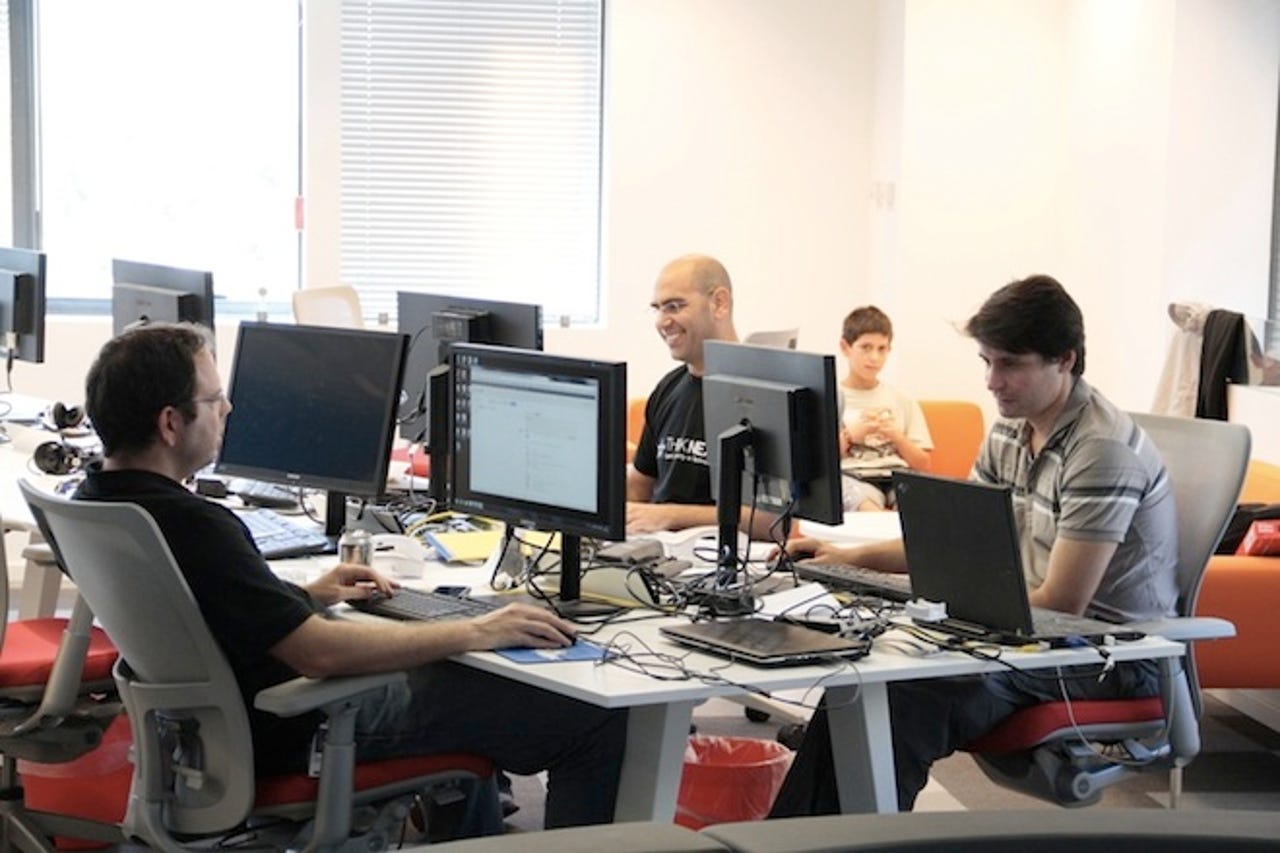Seconds out, round two: New batch of startup hopefuls graduate Microsoft's Azure accelerator


It's well known (or at least well suspected) that real innovation in tech comes from startups, where staff are not constrained by a stifling corporate culture, layers of management, or tortoise-like decision-making processes. Companies around the world often — at least on paper — talk of themselves as being "innovative" and "in startup mode", and some of them even install the trappings of the startup life, like Segways running through the hallways.
But just as leopards struggle to change their spots, enterprises struggle to divorce themselves from their protocols and culture — a shame, as they miss out on the flexibility and innovation found in startups. If you can't beat 'em, join 'em, goes the old saying — and Microsoft, a grandaddy in IT company lifetime terms, is doing just that by setting up in-house accelerators that recruits startups, feeds and looks after them, and helps them to 'grow up' while letting them maintain their freedom to innovate, design, and operate at they see fit.
Read this
It's a model that has already been instituted in China and India and is likely to be expanded to other countries. The initial inspiration for the accelerator program was Microsoft's first startup accelerator in the Israeli city of Herzliya, said Zack Weisfeld, Microsoft Israel's director of business development.
"The accelerator was an Israeli project to start with, and has become a showcase for the rest of the Microsoft world," said Weisfeld at last week's 'graduation' for the 13 companies that participated in the second round of Microsoft's Azure Accelerator program. The graduation consisted of the companies' showing off their technology to company executives and investors at the Azure Incubator Startups Demo Day.
Linux if you want to
Not that Microsoft is a stranger to startups: the company has several programs that fund and assist small companies developing new technology. But they are nowhere as comprehensive as the Azure accelerator, which takes startups into the Microsoft empire without requiring them to change the way they operate. If, for example, a company is comfortable working using Linux, that's cool; there is no requirement that they deploy, or develop for, Windows. Same goes for other 'environmental' issues.
Of course, startups are likely to find it easier to develop with Windows in mind, or at least using Microsoft products, since part of the program includes technical assistance, mentoring (both technical and business), and other support services – which, it could be expected, would be easier to deploy using the preferred in-house brand.
But it is by no means a requirement, said Weisfeld. Silverlight? Fuhgeddaboutit, said Rob Craft, senior director of cloud strategy at Microsoft. "The plugin world has been supplanted, and HTML5 is today the default development experience. We at Microsoft, along with everyone else, prefer the native experience" for web apps.
It almost sounds as if Microsoft has gone open source' in its attitudes — a statement Craft, who was in Israel for Cloud Day, a follow-up event held after the Demo Day, said he couldn't disagree with. "Microsoft is much more open than it was in the past. The world has changed quite a bit from a decade ago."
Read this
The cloud is part of this change, and Microsoft is seeking to carve out its cloud niche out of the shadow of its AWS rival. "Amazon has a very good cloud, and they have been doing cloud work for a long time," Craft said. "We differentiate ourselves by going beyond just offering hardware or software. We work with companies in many ways to help them succeed, through our programs that offer solid assistance to entrepreneurs."
The same philosophy pervades Microsoft's efforts on behalf of startups — and specifically the Herzliya accelerator, said Craft. "Coming from a corporate perspective, I can say that the emphasis we are now placing on working with startups is very satisfying. It's helping us to reach a lot of new developers that would not necessarily have worked with us before."
To date, the eleven companies that participated in the first round of the accelerator in 2012 have raised over $6.5m, an average of $800,000 each. In the most recently ended round, eight of the thirteen participating startups — most barely a year old — got $4m in first round funding from investors. "With these startups, we have done in just a few months the equivalent of seven years of work that most other accelerators in the world are able to accomplish," said Weisfeld.